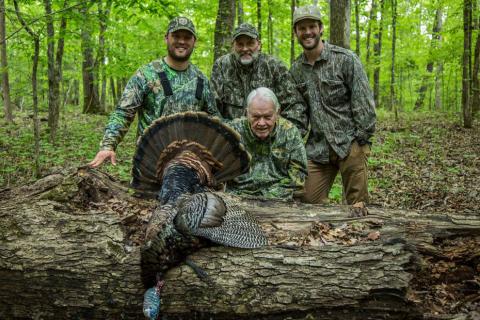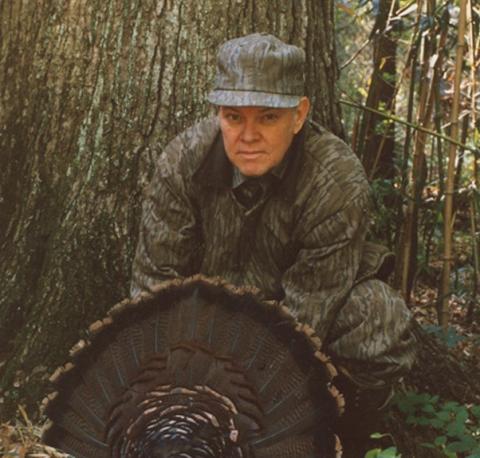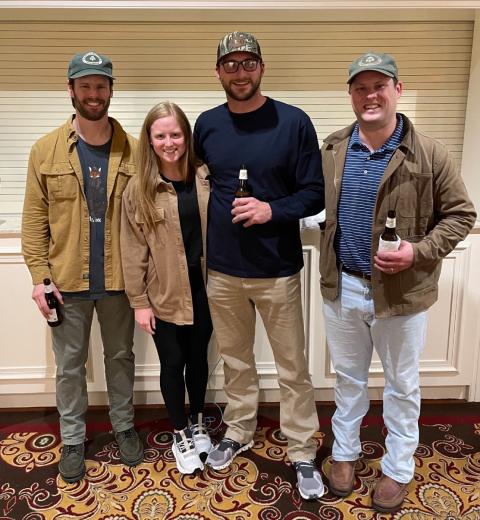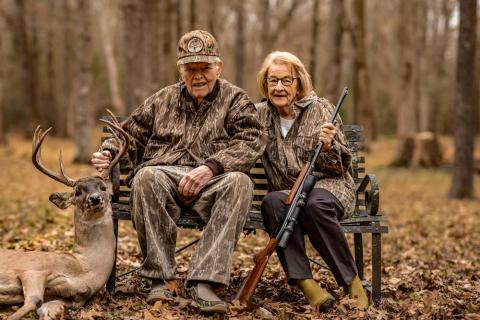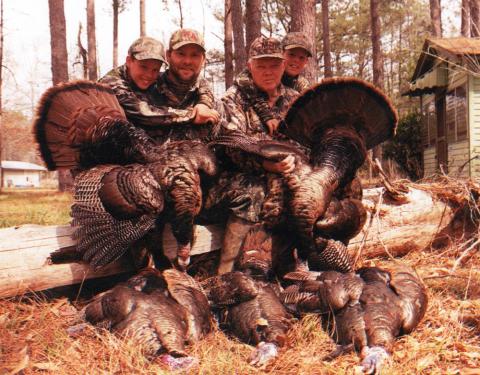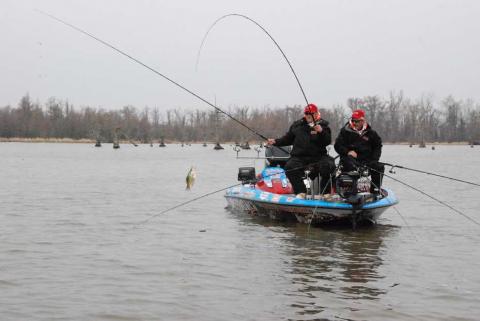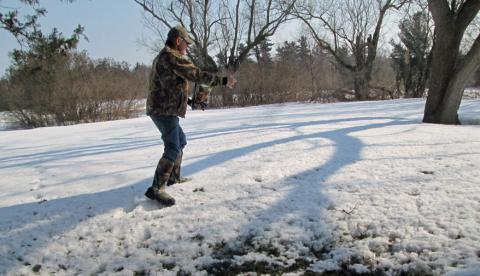Keri Butt | Originally published in GameKeepers: Farming for Wildlife Magazine
Gone are the days where you could knock on a door, ask permission to hunt and it was given – at least they’re gone east of the Mississippi. These days, you need to belong to a club, lease property for hunting or go all in and buy your own property.
It's certainly not your grandpa’s deer woods anymore. Private landowners who will allow hunters on their land out of sheer kindness are becoming fewer and further between with each passing year. Perhaps what’s more daunting is that many of them have gotten wise to the staggering amount of dollars and cents a hunter is willing to forgo in the name of leasing a good hunting property. It sounds like a good idea to lease, that is until the property changes hands when nobody told you there was an auction!
Should You Lease Property for Hunting?
How about this scenario: your lease is up, the property has only been subpar, you haven’t killed a single bruiser and the worst part is that you have nothing to show for it except for an empty wallet. Here’s another: you spend your hard earned money, time, blood, sweat and tears into building a leased property and you begin to have some great success and knock down several whoppers. Then the property owner leases the land to someone else who offers more than you can afford.
If either of these situations sounds familiar, maybe it’s time to take matters into your own hands. It’s likely that you’ve reached the point where there’s just one simple solution. It’s time to bite the bullet and purchase a piece of land — one that you can call your own and have the ability to manage it however you choose according to your personal goals.
Where to Start if You Decide to Buy
Of course, the million dollar question here is, where do you begin? It goes without saying that a lack of education leads to making hasty decisions, consequently proving to be nothing short of a nightmare. Doing your homework is crucial to finding a property that you can transform into a deer hunter’s paradise, and one that you can afford without breaking the bank.
The owner of Full Draw Hunts, Inc, Jeff Butler, is a West Central Illinois Land Specialist and a Broker for Mossy Oak Properties AgriRec Land. Butler says he became a broker for Mossy Oak Properties because he saw a need in his area for hard working agents who are looking to help people realize their dreams of land ownership.
“When looking for a property for whitetail hunting, the number one thing is obviously location. However, while location is key, there are a number of other factors that come into play and must be considered, including habitat, the breakdown of neighboring properties, and perhaps just as important as any, access.”
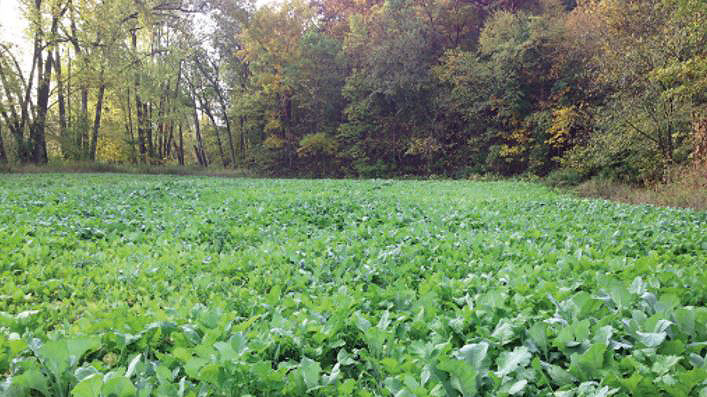
Look for Like-Minded and Educated Brokers
When you need a new lawn mower, do you visit an automobile dealership? Hopefully, your answer is, “no.” So, why would you call a snazzy, fast-talking realtor you have absolutely nothing in common with to help you locate that amazing piece of land you plan to use for the sole purpose of hunting and wildlife management? You hopefully wouldn’t, and you definitely shouldn’t.
Thankfully, these days, there’s no reason to search far and wide to locate a well-respected and experienced land broker who specializes in recreational property. The key is to research and find an agent or company that is reputable, knowledgeable and whose mission statement conveys that the buyer’s satisfaction is their priority.
While finding an agent that is like-minded in regards to hunting and land management is important, it’s equally essential to look for a trained and educated professional. In Butler’s home state of Illinois, all real estate agents must be licensed and tested, which includes 90 hours of pre-licensing classes and the state examination. After receiving the license, you must go on to complete 30 hours of post-licensing education. Talk about dedication!
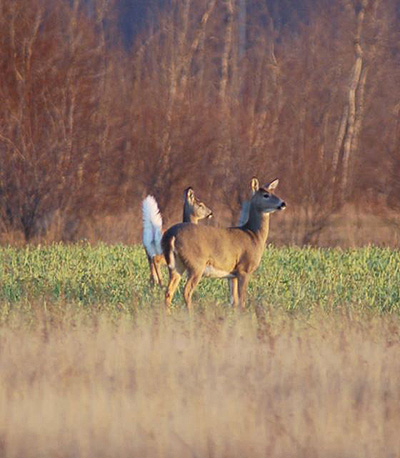
needs is communicating with your land specialist. Do they
reply promptly to your calls or follow up on any loose ends
that arise? Your satisfaction should be their priority.
“What sets Mossy Oak Properties (MOP) apart from the rest is our own Certified Land Specialist Training Program. This gives all MOP brokers a headstart and the tools necessary to be successful. Mossy Oak Properties has the only certified land specialists in the industry.” Butler says that becoming a land specialist for Mossy Oak Properties AgriRec Land is definitely something he takes a lot of pride in. “One thing I’ve learned is that the Mossy Oak Property family is different than other brokerages. It’s all about developing relationships and doing business with honesty and integrity at MOP. That is what drew me to MOP in the first place, since those traits are just as important to me.”
Assess Your Long Term Goals
Before you begin to comb the market for a broker or land, it’s a good idea to take some time and assess your goals if you haven’t already done so. Will the property be only used for hunting or will it provide you and your family with other recreational options? Do you plan on utilizing any of the space for food plots? Will you be the only person hunting on your acreage or will you choose to allow guests? Is there a specific location or county that you have in mind? How often do you plan on hunting throughout the season? For example: are you a gun hunter with limited amount of season available, or a diehard bow hunter who is in a stand every chance you get come hell or high water?
Asking and determining the answers to these questions ahead of time helps you to relay your directive to a land specialist, which in turn, will allow him or her to put you on a piece of land specifically suited to your needs. Having a prepared list of objectives will also keep you from making hasty, uninformed decisions as well as help you and your broker begin your relationship with positive lines of communication. After all, one man’s (or woman’s) hunting property might be another’s idea of a bona fide dump, or vice versa.
Money Talks: Setting a Budget
Defining your budget and setting monetary boundaries is another essential factor to predetermine. Again, this gives your broker a place to start, or more importantly, a place to stop. There’s no point in falling in love with a property that you can’t afford. All this will do is force your subconscious mind to compare affordable properties with those that are out of reach, which can sometimes make even a really good parcel seem mediocre.
Confusion and frustration are the last emotions you should be feeling when you’re in the market to make such an important decision on a sizable purchase. So, while realizing your financial limitations and then discussing them with your chosen land specialist may be a bit uncomfortable, the conversation is necessary to prevent you from getting in over your head…or in hot water with your spouse!
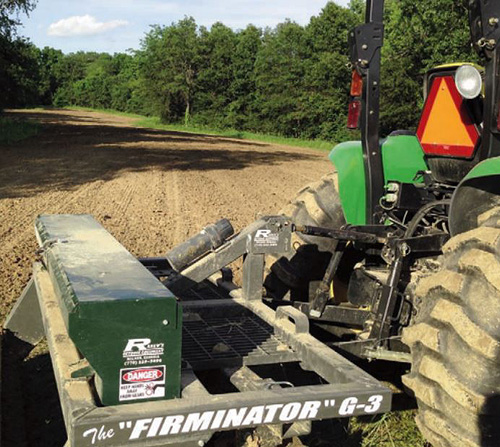
hunting, in addition to having information about the properties available in
the area.
Searching for a Great Land Broker
First of all, purchasing a tract of land, regardless of whether it’s 20 acres or 2,000 acres, may be one of the largest investments you’ll ever make. And, for the average person, it’s daunting at best and may prove to be nearly impossible at worst. Finding a land broker who realizes this point is fundamental for you to be satisfied with the end result — calling a great piece of land your own!
Butler says that when searching for a real estate broker, there are several things to look for. “The first thing I would suggest is to look for good communication. Do they answer when you call? This can suggest a lot. Secondly, do they have the tools and knowledge about the area you’re looking to purchase in? Be sure you find an agent that specializes in whatever type of property you’re looking to purchase, always remaining mindful of your personal goals and wishes.”
Lastly, Butler suggests that you build a relationship with your real estate broker that will extend far beyond the close of the sale. Paying close attention to a broker’s behavior during the initial contact and beginning stage of the relationship can prevent a ginormous mistake further down the road.
Another characteristic of a land broker to consider, especially if you intend to incorporate food plots, is the extent of their knowledge and expertise when it comes to taking a great piece of land and transforming it into an amazing hunting property. Different locations come with a host of variables in regards to ecosystem and terrain. This is why it’s important to understand if your food plot and/or hunting aspirations coincide with the property’s attributes. What’s the soil like? Does it have a tendency to hold water or does it drain well? Is there a water source nearby where your future food plots will grow? Which plantings are best suited for the area and habitat? What farm crops and natural vegetation surround the acreage? And will they not only be conducive to, but also complement your goals?
Ask the broker many questions and take note of the thoroughness of their response. Don’t assume asking questions is foolish. It’s simply a matter of smart business sense. Does the agent in question eagerly answer your queries, or do they skirt around them like a politician, or seem annoyed or bothered? References from previous clients are also useful tools in helping you locate a land broker and a credible agent who will happily provide you with them.
Accessibility
Knowing the accessibility to a possible chunk of property is undoubtedly necessary and definitely brings those original goals and plans into play. Is it accessible by road or does it at least have some sort of maintained path that will get you in and out of the area? Will you be using a pickup truck or ATV to transport equipment, such as treestands and trail cameras, in addition to getting to the treestand during hunting season? Or, will you be planting large food plots that will require large landscape or farm machinery to be used?
Perhaps the property is a parcel of timber that’s surrounded by agricultural crops. You may have to discuss with adjacent neighbors about property access, even if it’s only to cross a single path to gain access to your timber. Maybe you’ll have to clear an access road or path yourself. If you have to hire the project out, are you prepared to spend the money? Or, do you own the proper heavy equipment that will be needed? Once again, just remember that it’s important to be certain you have permission from neighbors, especially if there are farm crops or livestock involved.
Unfortunately, accessibility isn’t always considered until after the fact. While ground that has virtually been free of human intrusion is quite possibly a deer haven, if you can’t get to it fairly easily, it has no capacity to be a productive hunting spot.
Making Nice with the Neighbors
Do surrounding landowners or neighbors hunt also? What type of hunter are you? How about them? Are they strictly big buck hunters or do they simply want to put meat in their freezer? Are bucks under a certain age considered off limits, or will you be dealing with the, “if it’s brown, it’s down” mentality? While this might not be the most important aspect of choosing a hunting property that’s right for you, in the long-run, you’ll be happier and more relieved to have discovered what your neighbors are like before you sign papers.
Sadly, it’s not uncommon for sparks to fly between neighbors over simply having different styles of management and goals. But, if you can find a location in which you share commonalities with those who hunt around you, then you have the ability and relationships to make your ground fantastically successful.
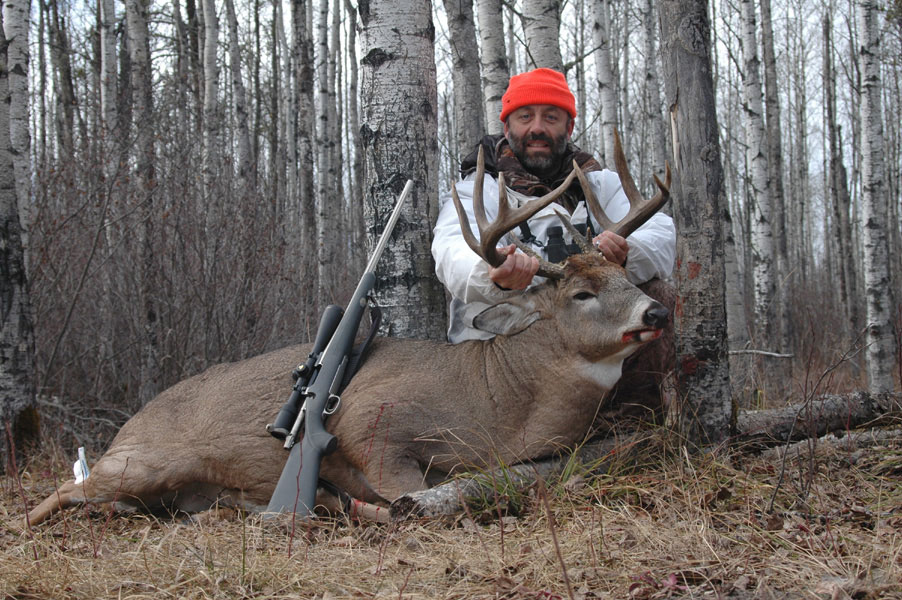
Property Buying No-Nos
When making a large purchase, even as exciting as it may be, sometimes the idea of your hard-earned cash changing hands and leaving your pocket can bring about a certain level of stress for some folks, causing common sense to float out the window. Don’t be afraid to ask questions, and lots of them. That’s why you hired an experienced agent. They expect you to ask questions. They want you to ask questions. Remember, their priority is your satisfaction in how they’ve done their job. If you feel that an agent isn’t properly answering your inquiries or is avoiding them entirely, you should high-tail it out of their office, not pausing to look back.
Again, it sounds cliché, but no question is too small or ridiculous in a transaction this big. Besides, chances are that the broker has already been asked the same question before. “Don’t settle for a piece of ground that you don’t really want,” Butler insists. “Every piece of dirt is a project, but never settle for something that can’t be what you really want it to be in the long term.”
A Rewarding Decision
Clearly, making an investment in a tract of land you plan to utilize primarily for hunting and land management is not something to be considered lightly. Still, if you’re deciding whether to buy or lease property for hunting, buying usually makes better sense. Making snap and uninformed choices will get you nowhere in a hurry, including the possibility of wasting a whole lot of cash in your haste to simply own a property…any property. While patience is difficult for some, taking your time to research and locate a reputable and knowledgeable land specialist, and asking what may seem like an insane amount of questions, can only provide you with a positive outcome. Signing your name on the deed of what will hopefully become your very own whitetail hunting paradise will be a great reward.
To make contact with Mossy Oak Properties AgriRec Land Specialist Jeff Butler, or another agent in your area, visit Mossy Oak Properties or AgriRec Land.



















